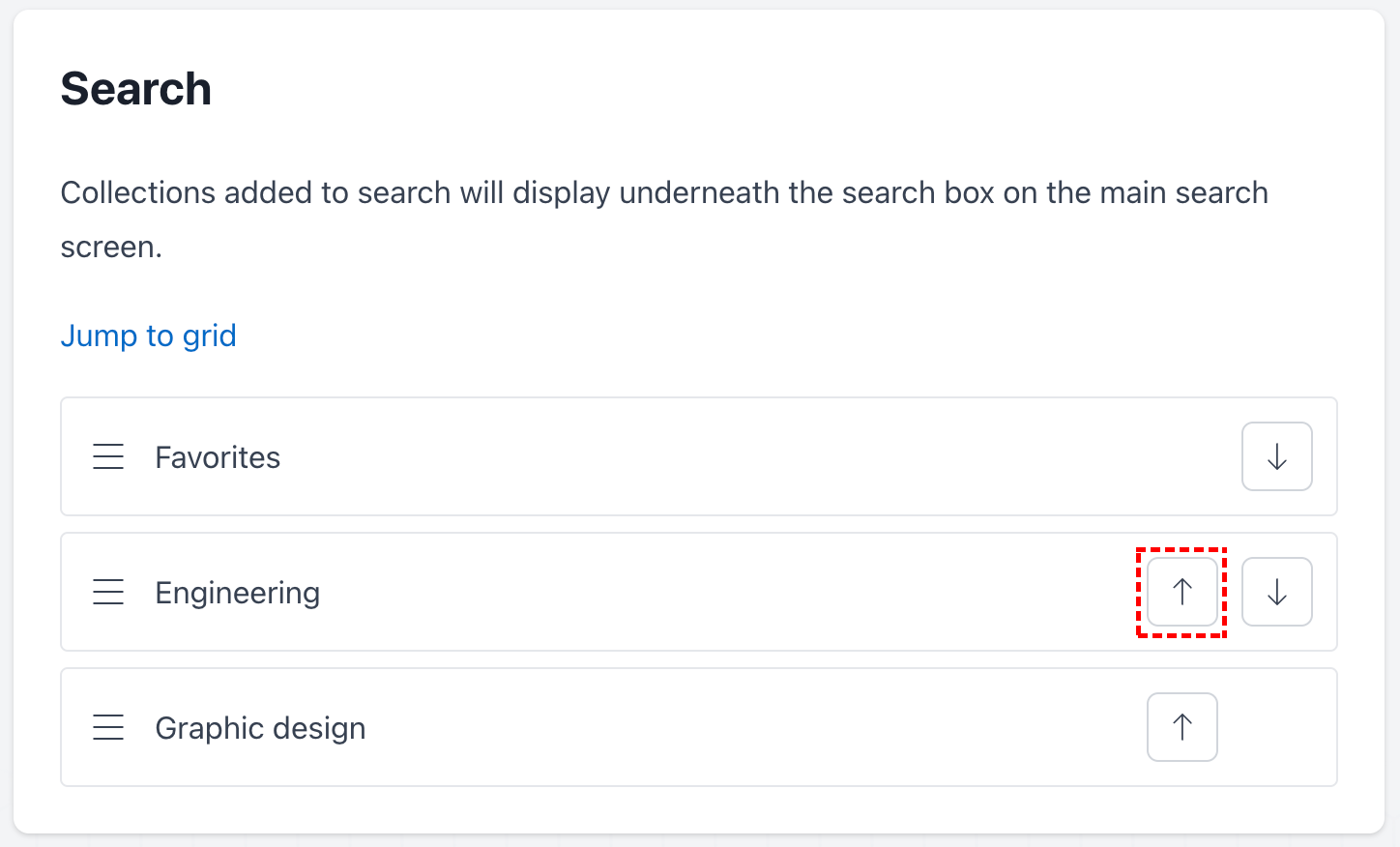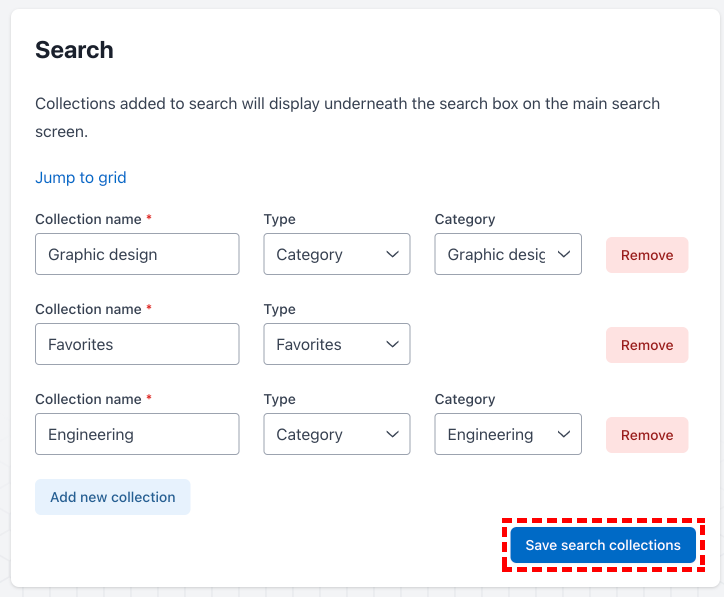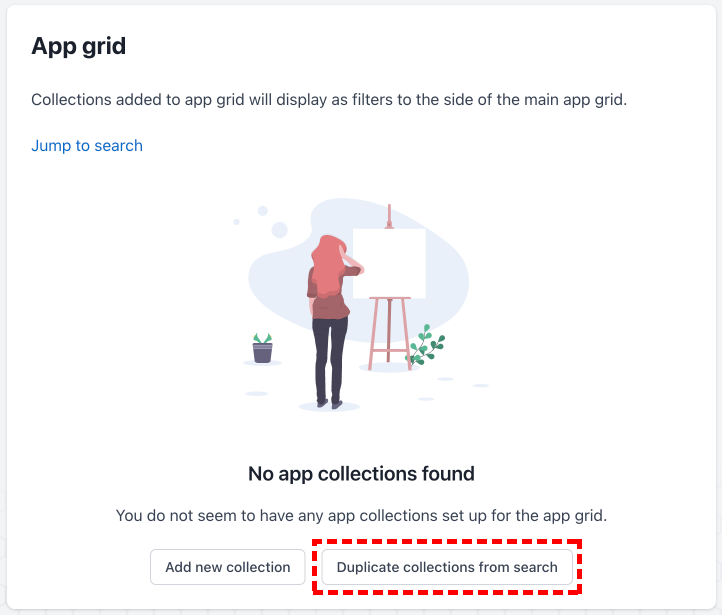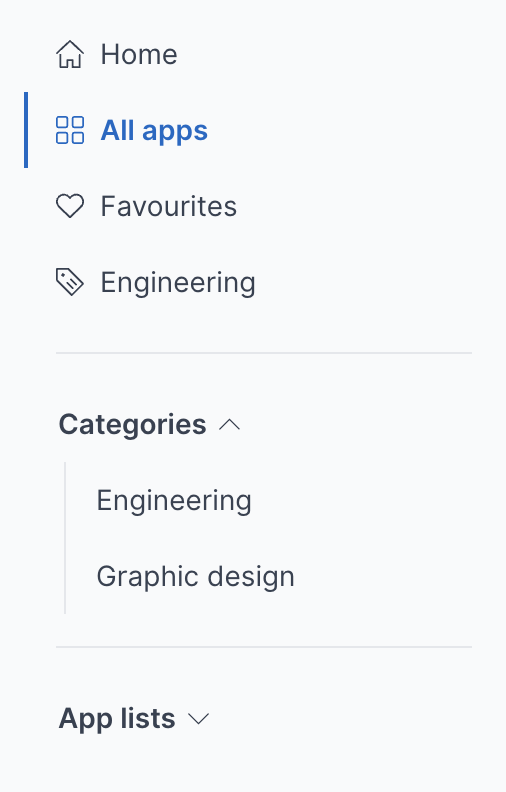Managing app collections
Contents
Requirements
AppsAnywhere 2.12+
Overview
App collections are groups of apps which can be highlighted to the user. There are five types of app collection - ‘favorites, ‘desktops’, ‘new’, ‘recent’ and ‘category’. Apps in ‘favorites’, ‘desktops’, ‘new’ and ‘recent’ collections are dynamically generated based on specific conditions (e.g. apps that the user has favorited), while category collections are associated to a category and contain the apps in the associated category.
App collections can appear in either the search page or the app grid page. The settings page contains sections for both of these pages, and which section the collection is added to will determine where that collection appears.
Navigating to the app collections settings page
Prerequisites
System administrator privileges
Steps
Log in as an admin user
If you’re on the portal, click Return to admin
In the sidebar, expand the settings section and click App collections
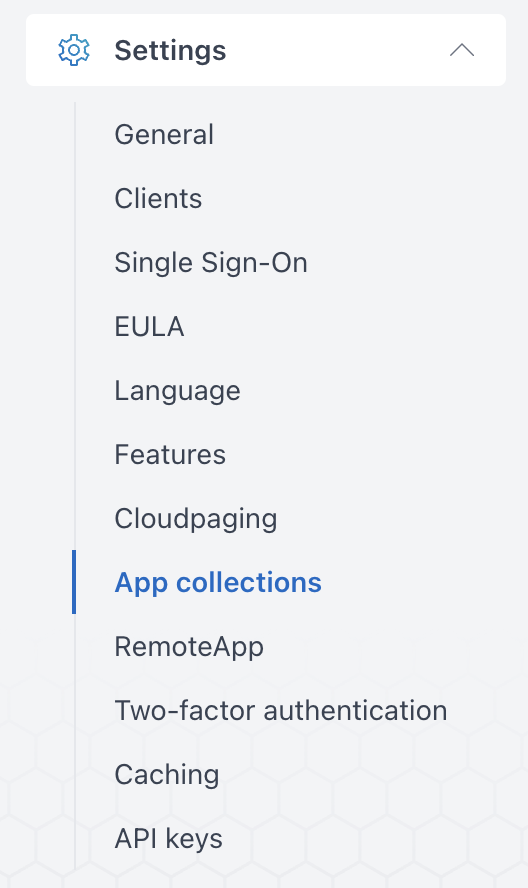
Preconfigured collections
These are collections that come preconfigured with AppsAnywhere and are available out of the box. Each of these collections is intended to solve a common use case, reducing the burden of use for both users and administrators of AppsAnywhere alike.
Recent
It’s common for people to use a small number of apps regularly. Recent exists to provide quick access to apps users are most likely to need - those that they’ve recently used. To speed up finding these apps when accessing the portal, those that have been used recently are added to this collection automatically for the user. When an app is launched by a user, it appears in their ‘recent’ collection, with up to a maximum of 20 apps tracked at any one time.
The ‘recent’ collection is configured to appear on both the search and app grid pages by default, but can be removed from either of these pages by the administrator.
Favorites
If a user knows they regularly, or occasionally, need access to particular apps, favorites is a great solution. To speed up finding these apps when accessing the portal, the user can mark them as favorites via the more info page. When an app is favorited by a user, it appears in their ‘favorites’ collection. When combined with recent, favorites could be used by users for the apps they use less frequently, but still want quick access to.
The ‘favorites’ collection is configured to appear on both the search and app grid pages by default, but can be removed from either of these pages by the administrator.
Desktops
It can be difficult for users to tell apps and desktops apart at a glance; to help with this, the desktops collection can provide a quick and easy way for the user to view all desktops that they have access to.
The ‘desktops’ collection is not configured to appear on both the search and app grid pages by default, but can be added to either of these pages by the administrator.
New
New shows the most recently added applications - which is a great way for users to find apps they might not have used before, or have been waiting for. To speed up finding these apps when accessing the portal, those that have been recently added to the system will appear in this collection automatically. When an app is added to AppsAnywhere, it appears in the ‘new’ collection for users. Applications disappear from this collection after one month.
The ‘new’ collection is configured to appear on both the search and app grid pages by default, but can be removed from either of these pages by the administrator.
An example: adding the favorites collection to a section
The favorites collection can be configured to appear in the search page and app grid page.
Prerequisites
System administrator privileges
You must decide whether you would like the favorites collection to appear on the Search page, the App grid, or both
Steps
Navigate to the app collections page
Identify the section you would like the favorites collection to appear in and click the Add new collection button for this section
Enter the Collection name - if there is already a favorites collection set up in the other section then this name should be reused, otherwise we recommend using 'Favorites', or 'Favorites' translated into the language configured as your default
Set the Type to ‘Favorites’
Click the Save search collections or Save app grid collections button, depending on which section you are editing
If you would like favorites to appear in an additional section, return to step 2.

An example: removing the favorites collection from a section
Prerequisites
System administrator privileges
Steps
Navigate to the app collections page
Identify the section you would like to remove the favorites collection from
Find the favorites collection and click the Remove button
Click the Save search collections or Save app grid collections button, depending on which section you are editing
If you would like to remove favorites from more an additional, return to step 2.

What about other preconfigured collections?
You will be happy to know that all preconfigured collections (favorites, new, recent, and desktops) can be managed in exactly the same way. Follow the steps for managing the ‘favorites’ collection, deciding on an appropriate collection name and choosing the desired type when adding a collection, or simply identifying the collection in the list by name when removing a collection.
Tip: If you’re making changes to one section, but want both to be the same, if you remove all collections from a section, you can then duplicate the collections from the other to save time.
Category collections
Grouping related applications together into categories can help users find their apps more quickly, and discover new ones. Once apps have been grouped into categories, app collections allows you to promote categories in additional places.
Adding a new category collection to a section
Each collection is linked to a category. Before configuring a collection you should have set up a corresponding category.
Prerequisites
System administrator privileges
A category to link the new collection to
If a category you have recently added does not appear in the list, you can use the Reload categories button to refresh the list of categories.
Steps
Navigate to the app collections page
Identify the section you would like to add the collection to
Click the Add new collection button
In the Collection name field, type the name of the collection. This will typically be either what you have called this collection in a different section or the name of the category
Set the Type to ‘Category’
In the Category field, select the name of the category which corresponds to this collection
Click the Save search collections or Save app grid collections button, depending on which section you are editing


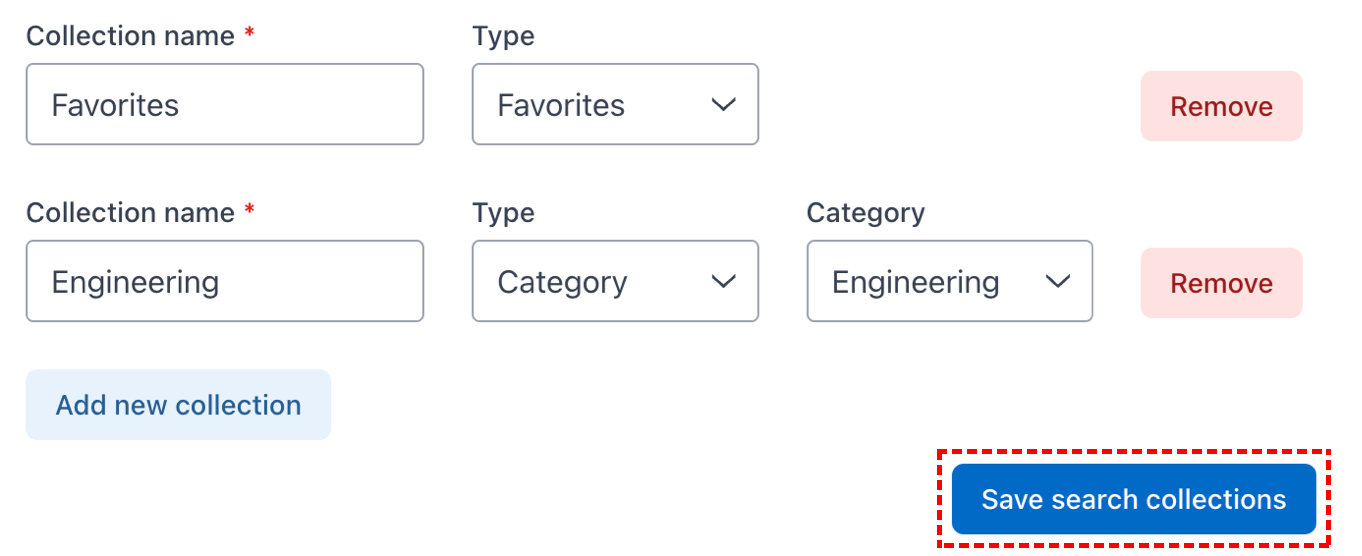
Removing an app collection from a section
Prerequisites
System administrator privileges
Steps
Navigate to the app collections page
Identify the section you would like to remove a collection from
Find the collection you would like to remove and click the Remove button
Click the Save search collections or Save app grid collections button, depending on which section you are editing
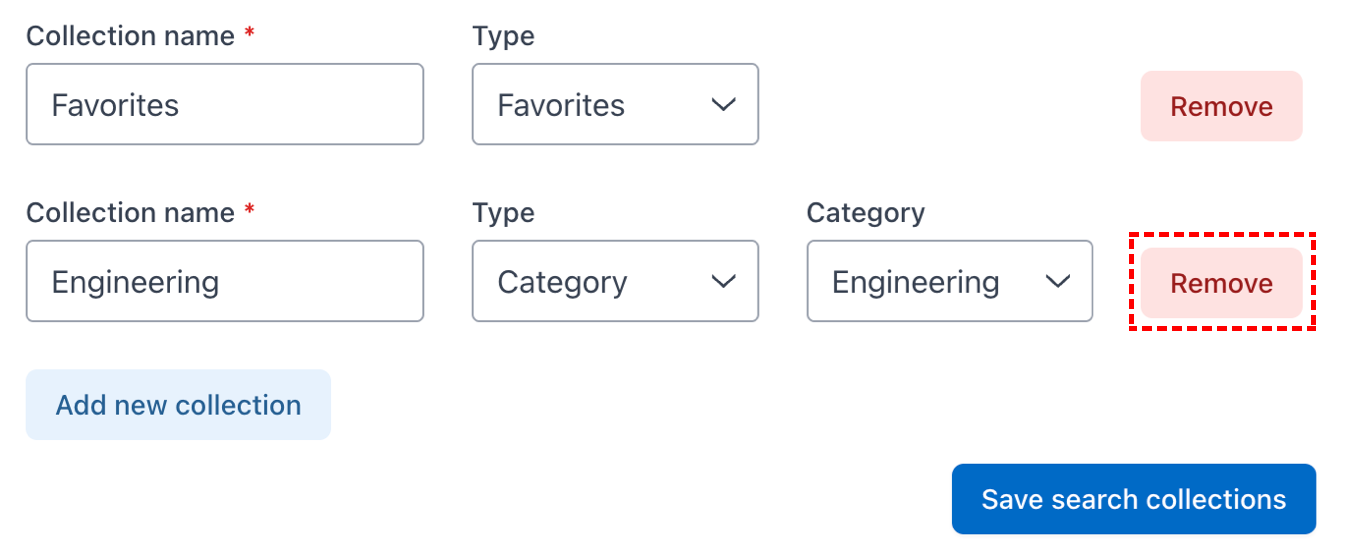

Ordering app collections
The order in which collections appear in the list determines the order in which they are presented to the user. You can change the order in which they appear by following these instructions.
Default collection for the search screen
When visiting the search screen, the collection that appears first in the Search section will be immediately visible to the user - including its apps. By default this is set to Favorites.
Prerequisites
System administrator privileges
At least two app collections set up in any section
Steps
Navigate to the app collections page
Click the Reorder collections button
Identify the section you would like to reorder
Click the up and down arrows to change the order of each collection until you achieve the desired order
Once you have finished reordering the collections, click Finish reordering
Click the Save search collections and/or Save app grid collections buttons, depending on which sections you have reordered

